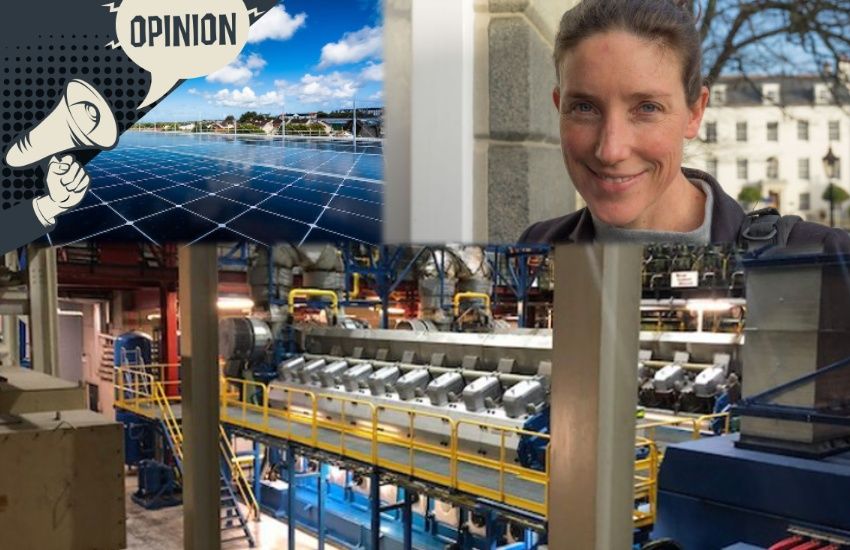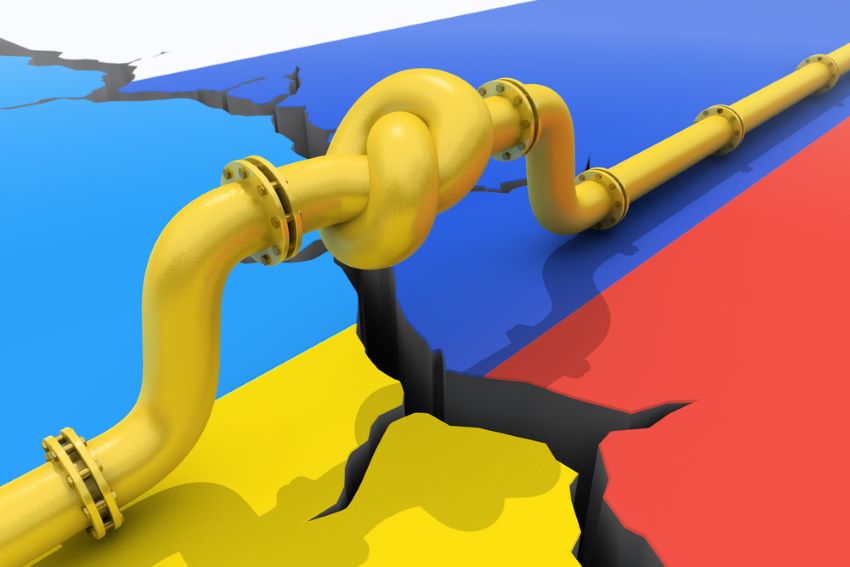


The local think tank GPEG - Guernsey Policy & Economic Group - has roundly criticised the States' approach to energy policy. Here, the President of the States' Committee for the Environment & Infrastructure, Deputy Lindsay De Sausmarez, responds.
"I am rather astonished that – yet again – GPEG have issued a media release criticising the States without first even attempting to contact the relevant committee to establish the facts of the matter. This strikes me as particularly ironic as their website’s homepage advertises their commitment to dialogue, research and leadership.
As the President of the Committee for the Environment & Infrastructure, I have personally reached out to Mr Neville, whose knowledge of and experience in financial regulation I respect, to offer to discuss this extensive area of our work and explain what we are working on.
We have made no secret of the fact that energy and the environment are priorities this political term, so it will surprise no one who has listened to States' debates, my update statements or the many interviews I have given that there is a huge amount of work taking place – some of which we have actively accelerated since the situation in Ukraine began to unfold.
Events in Ukraine and Russia underscore more than ever the vital importance of accurate information, which is what makes GPEG’s media release - which in places is factually erroneous - and its timing all the more disappointing to me.

Pictured: Deputy Lindsay De Sausmarez says the States are already responding to challenges of energy security brought into sharp relief by Russia's recent invasion of Ukraine.
I will take this opportunity, however, to provide a concise summary of some of the work we are doing on energy in order to accurately inform islanders in what is a worrying time in so many respects.
The war in Ukraine and the subsequent sanctions on Russia are severely impacting the global energy markets and nobody is expecting those effects to be short-lived. Risk evaluation and contingency planning have always been an important part of our role as a government and leading up to and throughout the current conflict we have intensified our focus on security of energy supply, helped by the fact we have strong working relationships and good dialogue with the island’s energy providers.
I can reassure islanders that the conclusion of our current assessments is that there is no imminent direct risk to our security of supply. Guernsey won’t be immune from the global impact on energy prices, of course, but we are in a better position than many other jurisdictions to withstand the worst effects.
As we showed when we took immediate action to mitigate the effects of the gas market shock a few months ago, we are alert and agile, and we do respond quickly to rapidly evolving situations.
We have already pivoted our action plans around the current events. I met virtually with my Jersey counterparts on energy to explore the potential for further co-operation on renewable energy, a conversation in which we discussed the financial and geopolitical implications of current events, among other things.

Pictured: Deputy Lindsay De Sausmarez says that she and her colleagues who are leading on energy policy have a good working relationship with the island's energy suppliers, including Guernsey Electricity.
As those who follow States' meetings will know, the development of our electricity strategy is a priority, and progressing well.
It is essential that it is informed by the kind of technical, strategic and financial expertise that we are of course engaging. These include subject matter experts as well as relevant stakeholders in our energy market locally.
Our electricity strategy will comprise a supply strategy, a demand strategy and a market strategy – through which the States will agree key decisions on security, affordability and environmental impact, which together are the foundation stones of our 2020 energy policy.
This strategy is essential to inform the public and private investment decisions needed for efficient decarbonisation and our transition to a green economy.
While much of the focus in political and public discourse is on energy generation, reducing our demand - through energy conservation and greater efficiency, for example - is a powerful way for us to reduce our energy dependency on other jurisdictions.

Pictured: GPEG's wide-ranging criticism of States' energy policy is largely misplaced and "in places factually erroneous", according to the President of the Committee for the Environment & Infrastructure.
The Committee is also focused on the critical issue of the infrastructure needed to support decarbonisation and current events of course inform our thinking on the pace and investment needed for that transition.
I’m delighted that Mr Neville appears to have taken an interest in climate change – the urgency of which I have been stressing for many years now – and I look forward to GPEG’s vocal support for the case we expect to bring through the Government Work Plan for resources to accelerate elements of that important body of work.
I’m pleased to say that I have just now received confirmation from Mr Neville that he would very much like to meet, so I welcome the opportunity, however belated, to explain our energy policy and the progress of its implementation in more detail."
Deputy Lindsay De Sausmarez (pictured, top right),
President, Committee for the Environment & Infrastructure
OPINION: "The States must wake up on energy and the environment"
E&I President astonished by GPEG's scathing criticism of energy policy